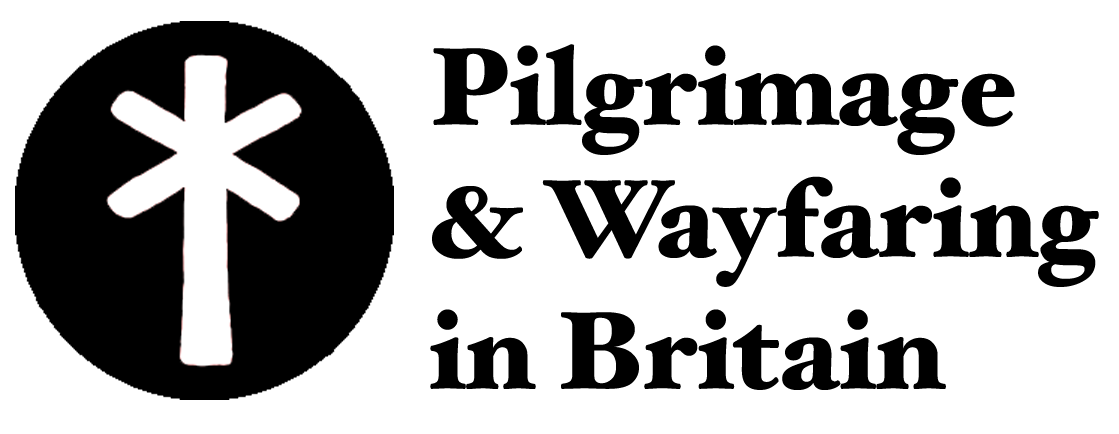My name is William Parsons.
I am the creator of ‘Wayfaring Britain’, ‘The British Pilgrimage Trust’ and ‘A Walk Around Britain’, and re-discoverer of ‘The Old Way’ pilgrimage from Southampton to Canterbury.
I was born in South England, and have spent most of my life in the same small valley.
When I was 21, I inherited my father’s walking boots. He was a radical Rambler, building stiles over fenced fields at midnight, and getting chased by farmers with shotguns and dogs. When I was a small lad, my dad walked from France to England through the Channel Tunnel.
When I left university I created a project called ‘A Walk Around Britain’. I went for a walk (with my pal Ed and sometimes his brother Ginger) and accidentally became a wandering minstrel, singing for my supper on various very long journeys around England and Wales (up to 9 months). During this time, we recorded an album, picked some hops, got in Vogue magazine and BBC TV, and had a contract offer from Decca Records. You can read all about it in this book.
I next became a pilgrim, firstly to the source of a song. At my destination I met direct descendants of the song’s protagonists, who had never heard ‘their’ song. So I returned the song to its bloodline, while stood by the grave of their ancestors. This felt like making something whole. It felt holy. It seemed to offer an instant affirmation of ‘pilgrimage’ as a focused walking ritual with commemorative and gift-giving intentions. Compared to my previous vague songful amblings, this short form of singing pilgrimage felt like tightening the strings of the fiddle. It simply worked.
So I decided to found a charity (The British Pilgrimage Trust) to renew the British tradition of pilgrimage. I hoped to create a neutral centre for British pilgrimage, without religious or non-religious ownership, where everyone would feel welcome, but no-one could claim control. I aimed for a wandering spiritual commons, where people of any faith & none might walk together in shared hope of wholeness. I called this ‘Open to All’ and ‘Bring Your Own Beliefs’. It was a beautiful vision, and for a while, the charity was wildly successful, with illustrious funders, TV and newspaper publicity, and thousands of followers.
Having founded this charity, established its DNA and trained the team in the basics of pilgrimage, things sadly went awry. I trusted the wrong people, and found myself cut out of the charity I had made by the person I had brought in and trained. It was a bleak wake-up call.
So I moved toward the wider tradition of Wayfaring - fundamental human transport on foot. It is a tradition with the deepest history imaginable, and with no religious taboos attached.
Wayfaring is a birthright for humans on these islands. Today, during the Covid19 Pandemic, Wayfaring offers a path to freedom when so much seems closed: Essential Wayfaring. This is travel by footpath for essential travel. Not only is this the safest and most responsible form of pandemic travel, it offers all the benefits of ‘normal’ Wayfaring.
I am also working on the Old Way, a lost path between Southampton and Canterbury that I (re)discovered in 2015 on Britain’s oldest ‘road-map’. I had been hunting for this route since 2004. It follows the Solent Coast, the South Downs, and the Weald of Kent. I’ve walked the Old Way three times in full (+ lots more in parts). It is a wonderfully diverse, beautiful and many-storied path to Canterbury. And it may become a “Canterbury Camino”, connecting the UK to Santiago de Compostela (from Canterbury to Portsmouth, then Santander to Santiago). I hope Old Way shall introduce many people to Wayfaring in Britain.
But more than set-route walking, Wayfaring represents a path to escape the more insidious of our modern entrapments. It provides a refuge in movement and nature for anyone caught off guard by the perils of free-market capitalism. A simpler, healthier and less expensive way of life is available, for as long as you need it, on the footpaths of Britain. Even if you never claim this right of passage, I believe it is deeply valuable for us all to know such freedom remains accessible.
Thank you for reading all this. I appreciate any support you can offer my work. Please do buy my book, commission me to create a route, sport me a coffee, buy my album, or take a staff.
I hope to see you on the path. Walk well!
William Parsons.







